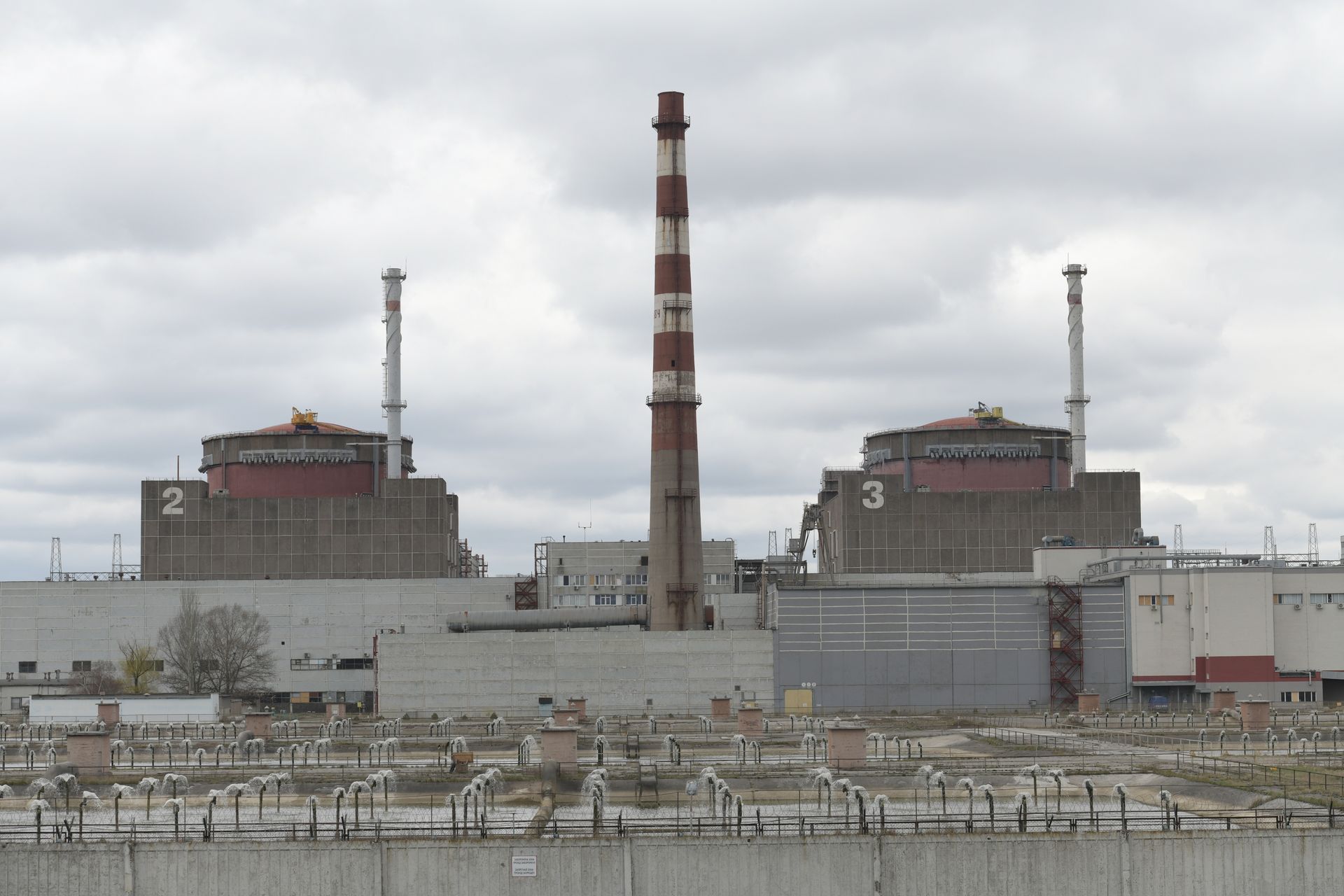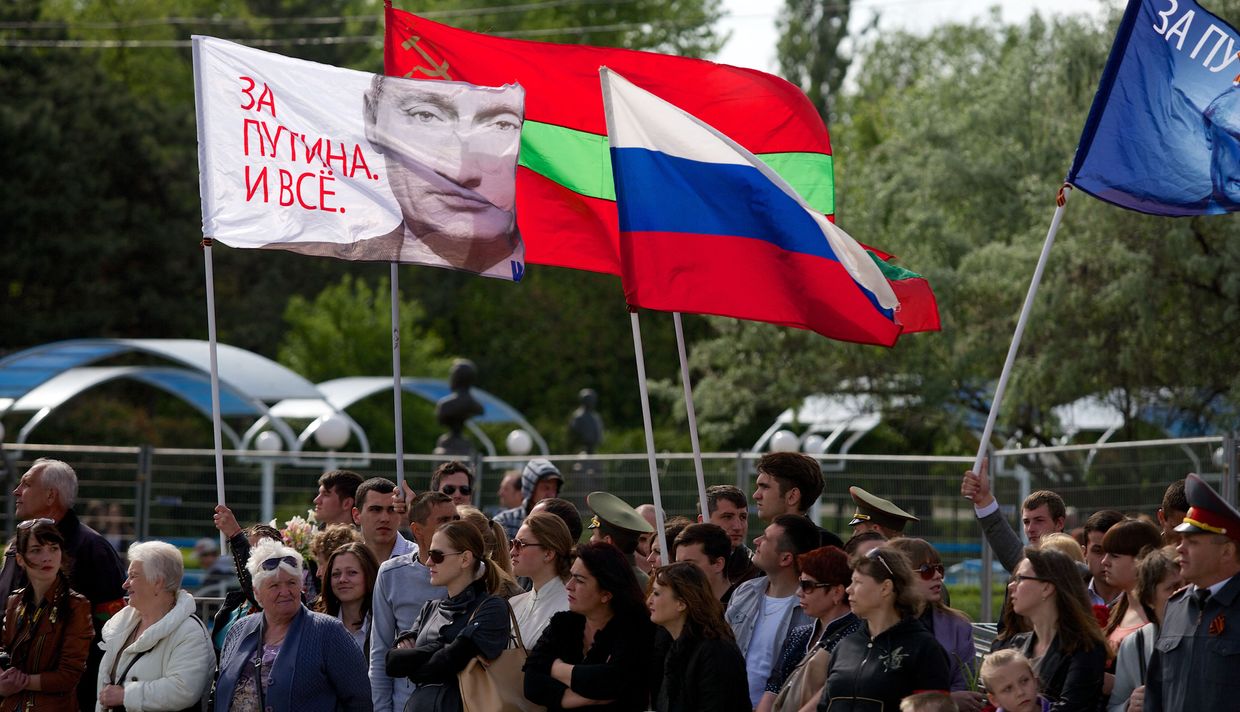Who sabotaged Nord Stream? 3 years on, investigations offer more questions than answers
Despite arrests and investigations, the audacious act of sabotage is a riddle Europe seems eager to forget.

Gas leaks from the Nord Stream 2 pipeline in the Baltic Sea are seen on Sept. 27, 2022, in this handout photo provided by the Swedish Coast Guard. (Swedish Coast Guard via Getty Images)
Three years since explosions rocked Russia's cherished Nord Stream pipelines, making them obsolete, very little remains known about the daring operation.
One of the boldest sabotages in modern history led to a series of underwater explosions and significant gas leaks, rupturing three of the four Nord Stream pipelines that run from Russia to Germany.
Germany is still investigating the event, but almost no details have been revealed. Denmark and Sweden, whose exclusive economic zones suffered from the sabotage, dropped the probe in 2024 without attributing responsibility.
Europe would likely seek to bury the case, according to Western experts observing the Nord Stream saga.
Considering the scale of the blasts on pipelines, the operation required "a lot of precision," said James Sherr, an honorary fellow at the Estonian think tank International Center for Defense and Security (ICDS). He stressed that a major question remains as to who could have had the technical means to install the equipment, most likely by heavy cranes, to deliver the explosions of such enormous force.
The cherished pipeline
The construction of the Nord Stream 2 pipeline, completed in September 2021, was controversial from the start. The second pipeline was meant to double the capacity of the existing Nord Stream 1 pipeline, making Europe more dependent on cheap Russian gas.
Nord Stream 2 never became operational, and the project was curtailed following the start of Russia's all-out war.
The U.S. and a number of European countries, including Ukraine, opposed the German-Russian multibillion-dollar project from the start, with Washington sanctioning its operator, Nord Stream 2 AG, and its executives in February 2022.

Despite numerous Western media investigations pointing fingers at Kyiv for deploying a small Ukrainian crew on a yacht to implant the explosives, the experts who spoke to the Kyiv Independent were skeptical about the timing of the sabotage.
It makes little sense for Ukraine to conduct such a sabotage that would anger its most important ally in Europe, especially after Germany had already suspended the Nord Stream 2 project, according to Sherr. He added that even if Ukraine were "lunatic enough" to carry out the sabotage regardless, it remains unanswered why there was almost no German comment accusing Kyiv of committing it.
A Ukrainian group suspected of conducting the attack, possibly out of patriotic motivation, is senseless because "it was an attack on an industrial ruin" that was no longer being used and had no meaning anymore for Russia or Germany, according to Andreas Umland, an analyst at the Stockholm Center for Eastern European Studies (SCEEUS) at the Swedish Institute of International Affairs.
"It creates a lot of negative publicity for Ukraine without having any sort of beneficial effect," Umland told the Kyiv Independent.
Meanwhile, Russia already has the experience of deliberately bombing its own pipeline that delivered Russian gas to Armenia and Georgia in 2006, Sherr said. Tbilisi blamed Moscow for the two explosions on the Mozdok-Tbilisi gas pipeline, a claim repeatedly denied by Russia.
Russian state-owned natural gas company Gazprom, which owns Nord Stream 1 and Nord Stream 2, is "an instrument designed by commercial means to advance Russian geopolitical interests," Sherr stressed.

Russia's decision to launch a full-scale war on Ukraine in 2022 despite the economic setbacks has changed the way it defines priorities and interests, and "that has to be at the center of any analysis about Russian behavior," he added.
Neither of the Nord Stream pipelines were operational at the time of the sabotage but contained gas, which led to the Danish authorities reporting a major overnight leak on Sept. 26, 2022.
Three of the four damaged pipelines contained 778 million cubic meters of natural gas, according to the Danish Energy Agency. Only one link remained intact.
Current state of investigation
The first suspect accused of being involved in the Nord Stream sabotage was arrested in Italy in August. The suspect is a 49-year-old Ukrainian national, only named Serhii K under German privacy law. Italian news outlet Ansa identified the suspect as Sehrii Kuznetsov.
The Italian court of Bologna ruled that the Ukrainian suspect should be extradited to Germany. Continuing to deny the allegations, his defense team said on Sept. 16 that he would take the case to the country's highest court and called against extradition, Reuters reported.
The arrest comes a year after Germany issued an arrest warrant for another Ukrainian, identified as Volodymyr Z, and passed it on to Poland, but the suspect escaped Poland, Reuters reported in August 2024, citing Polish prosecutors.
Ukrainians being suspected of taking part in the sabotage made little noise in German politics. Experts who spoke to the Kyiv Independent said that the potential involvement of Ukrainian individuals "means nothing," as anyone could have ordered them to do it, and the suspects may not even know the true body behind the attack.
With Germany locked in on more imminent issues from security guarantees to dealing with the U.S., the August arrest of Serhii K in Italy has not led to a big public or political debate so far, according to Stefan Meister, an analyst at the German Council on Foreign Relations (DGAP).
"At the moment, I think they just try to hang the ball low, not to have an impact on this policy of support for Ukraine because this is in the vital interest of Germany," the head of the Center for Order and Governance in Eastern Europe, Russia, and Central Asia at the DGAP told the Kyiv Independent.
Meister said that Germany would likely pursue the case and still try to get the Ukrainian man to the country. He said he had expected those who oppose support for Kyiv in Germany to use the Ukrainian man's arrest as a pretext to undermine Ukraine, but no such things were said even by members of the AfD, a far‑right, Russian-friendly populist party.
Germany has nearly concluded the investigation into the Nord Stream sabotage, at least forensically, and has identified and issued arrest warrants for seven Ukrainians, according to an August joint investigation conducted by German media ARD, Süddeutsche Zeitung, and Die Zeit.
The investigation, citing German prosecutors, alleges that four divers may have carried out the sabotage. It says that Volodymyr Z was transported out of Warsaw to Kyiv in a car registered under the Ukrainian military attache.
A Wall Street Journal investigation, published in August 2024, also pointed fingers at Ukraine for the sabotage. The investigation, citing senior Ukrainian defense and security officials who were either directly involved in the sabotage or have knowledge of the scheme, said that President Volodymyr Zelensky initially approved the plan but ordered the then Commander-in-Chief Valery Zaluzhnyi to halt it after allegedly receiving a warning from the CIA. It said that Zaluzhnyi still carried out the high-stakes operation after adjusting the plan.
He denied the accusation.
Political clashes
Mere accusations have stirred up geopolitical tensions after the Nord Stream sabotage.
Russia's Foreign Minister Sergey Lavrov said in 2024 that it was "clear" that the U.S. was behind the sabotage, without providing any evidence. Moscow claimed in 2022 that Washington had the interest to conduct it since it wants to sell more liquefied natural gas to Europe.
U.S. Energy Secretary Jennifer Granholm said right after the sabotage that it "seems" Russia was to blame for the series of blasts that destroyed the pipelines, telling the BBC then that "it is highly unlikely that these incidents are coincidence."
Germany has not publicly pinned the blame on the Ukrainian government despite issuing arrest warrants for Ukrainians. It has also not requested legal help from Kyiv to arrest the suspects.

Berlin has suggested that the sabotage could have been a "false flag" operation to trap Kyiv.
Ukraine has repeatedly denied being involved in the Nord Stream sabotage, especially after a series of media investigations surfaced online.
Oleksandr Merezhko, chair of the parliament's foreign affairs committee, suggested that the Nord Stream attack could be a Russian provocation to undermine Ukraine, echoing other Ukrainian officials' talking points.
While Merezhko stressed that it was Germany's "huge political mistake" to start building Nord Stream 2 despite the warning that Russia would try to use it to destroy Ukraine economically and politically, he doesn't expect the recent developments to negatively impact Ukraine-Germany relations and Berlin's support.
Merezhko said it doesn't make sense to pay any attention to the Nord Stream pipelines, especially when Russia, in his view, is already waging a hybrid war against Germany and "there is already a very serious conflict."
Sherr said that that's where his skepticism remains as to whether the official conclusion of the Nord Stream investigation will even ever be unveiled.











